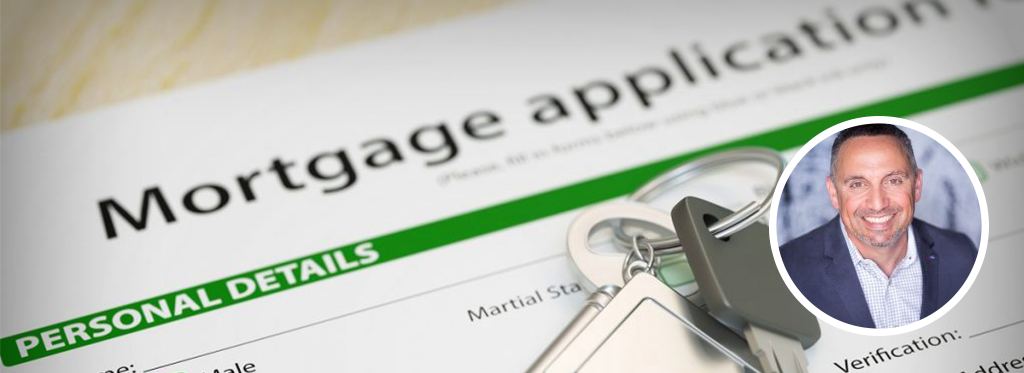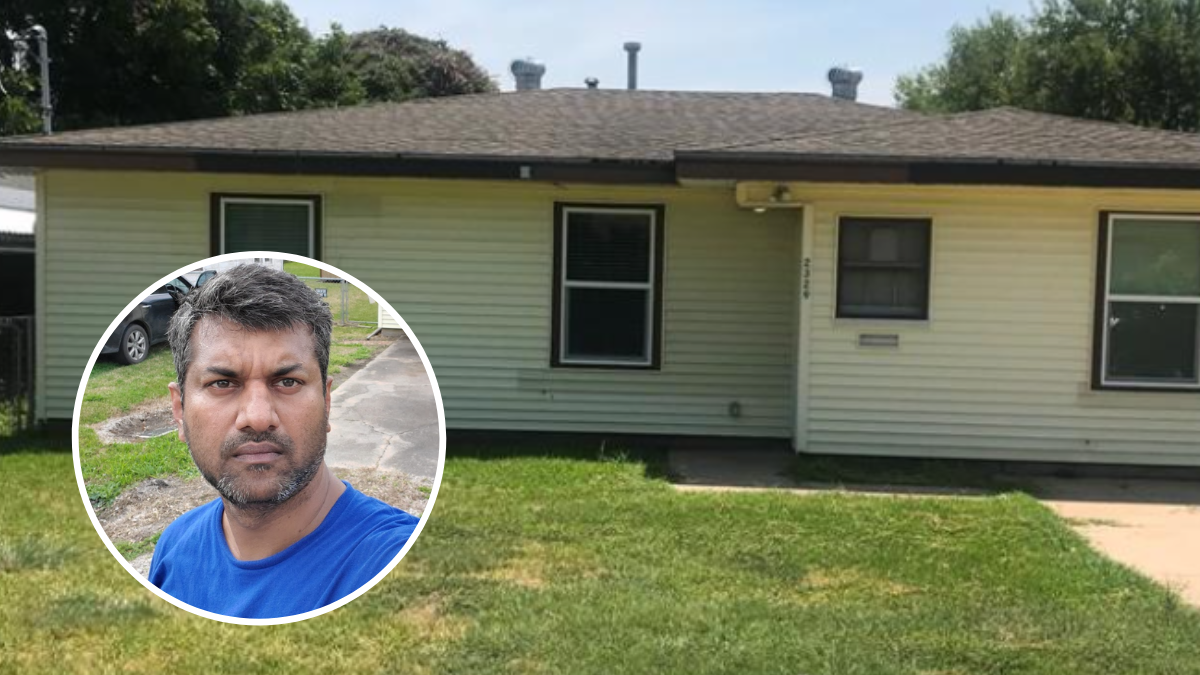Q & A with An Experienced Hard Money Lender – Our Questions Answered!
Hard money is an appealing financing option for new and experienced investors because of the low barriers to get a loan, but hard money loans can come with some challenges if you aren’t prepared.
Daryl Daik, owner of the very successful Noble Mortgage in Texas, sat down with us to go over some common questions we get at MyHouseDeals about hard money loans.
What does the term “hard” mean in “hard money”, and why would somebody get a hard money loan?
I’m not sure exactly sure where the term came from to be honest with you. It’s just a term that has evolved over time to describe short-term lenders who have the ability to fund loans in a very quick manner, and are also able to lend money to investors who are buying properties that are in distress. They’re in need of repair. A hard money lender will step in and lend them money to not only buy it, but also do the repairs on the property.
I guess you could say the term hard could stem from the terms of the loan, because typically they’re a lot more expensive. You might be able to borrow from a bank at 4% or 5% but when you’re talking to a hard money lender, you’re typically going to be at a double-digit interest rate of 10% to 14%.
What kind of investor would want to do a hard money loan?
The type of client really depends on what they’re doing with the property.
Reason #1 – Leverage: In the market that we have right now, most investors are using hard money to leverage themselves. When you buy a property for $50,000 and you go to a bank and you want to borrow money to buy the property, they’re going to ask you to put down at least a 20% down payment regardless of how much it’s valued at. If the property is worth more (like when you’re buying a house that’s in disrepair) you’re getting a better deal on it.
A hard money lender is going to look at the after repair value (ARV) of the property. We’ll lend up to 70%, sometimes 75% of the future value of the property. You could potentially get 100% financing on the property and leverage yourself, as opposed to putting down 20% on every single property like you typically do with conventional loans.
Reason #2 – Speed: Another big reason to use hard money is speed.
If you’re in a marketplace that’s going well, the market is really hot. You have investors that are fighting over property, so you need to be able to close quickly. If you’re putting an offer in front of a seller and you tell them you need 45 days to close, and the next guy comes in and says, “Hey, I can close this loan in a week,” then they’re probably going to take the guy that can close quicker.
A hard money lender can typically close in about five to seven business days. Again, you compare that to a traditional bank, you’re looking at 30 to 45 days, so speed is a big part of it.
Reason #3 – Credit: Then, lastly, is credit. People may not have perfect credit. A hard money lender doesn’t look only at their credit. Most do pull a credit report, but you don’t have to have perfect credit to qualify for a hard money loan.
What are some of the challenges with hard money?
The biggest challenge new investors face involves figuring out the ARV of the property. Investors know their purchase price, and they can get a contractor to tell them how much the repairs are, but they need to know what the ARV is and lot of new investors run into some stumbling blocks.
We like to work with our investors to figure out accurate after repair values, especially if they’re new. We also work with our appraiser to give the investor a better idea of what we think the property would be worth.
A hard money lender is going to lend whatever they’re going to lend, 70% or 75% of the ARV, but if there’s a shortfall, then the investor has to cover it. That’s the biggest struggle. That, and actually estimating the repairs and finding good contractors.
Do you help investors pull comps and assess repair value?
Yeah, we certainly can. A lot of times if it’s an experienced investor, they’ll come to us and say, “Hey, I’m buying this property. We think the ARV is $300,000”. And we’ll say, “Okay, great. We’ll send those to our appraiser, and we want you to actually talk to our appraiser and tell them what you’re doing to the house and how you came up with the value.”
If it’s someone who’s new, they may not have that ability. They may not be as skilled with pulling comps. We’ll actually have them send us the property address and the list of repairs that they’re doing to the property, and we can have our appraiser estimate it upfront.
What documentation do investors need to have to get a quote on a hard money loan?
When someone approaches us for a hard money loan, the first thing that we like to ask them is about their exit strategy and what they plan to do with the house. That tells us how we need to look at the pre-qualification for them.
If they’re just going to buy the property with the intention of reselling it or flipping the house for profit, then we take a one-page application and a bank statement. The bank statement tells us how much money they have in the bank. Even if I give you 100% financing, you’re still going to need some money to pay your contractor, and make loan payments. We like to see what type of money you have in the bank.
Now, if it’s a property you’re going to keep, that tells me that you need to be able to qualify for long-term financing, which is a completely different ball of wax than a hard money loan. Noble Mortgage is a hard money lender, but we also offer conventional loans, so we know what it takes to qualify.
If you’re going to keep it, we’re going to ask for everything. Two years’ tax returns, a couple months of bank statements, current pay stub. If you have an IRA or a 401(k), we’re going to need that. We’re going to look at everything that a conventional lender would look at to make sure that we can get you out of that short-term loan.
The biggest fear that a long-term investor has is getting into a hard money loan, not being able to refinance it, and getting stuck with a double-digit interest rate. We like to make sure that they qualify for long-term financing upfront.
How long does the whole process take for a buy and hold?
It only takes 24 to 48 hours to get someone pre-qualified, provided that they provide all the information needed upfront. If an investor is going to buy it, fix it, and keep it as a rental, then typically the investor is in and out of that loan in 60 to 90 days. As soon as the repairs are completed, we can refinance the property. It doesn’t even have to be rented yet as long as the repairs are completed.
If I have a $100,000 house, how much would you need out of pocket on the front-end?
It comes down to how much you’re buying the property for, and how much the repairs are.
If you’re buying a property to flip and 70% of the after repair value is enough to cover the purchase price, the repairs, and your closing costs, you don’t have to bring anything to closing. You can have a zero out-of-pocket costs for the deal. For closing costs, on average you’re paying around $4,000 on a $100,000 loan (but that can vary quite a bit from lender to lender, and market to market).
One of our success stories mentioned that on her first hard money loan, she had a lot of trouble scheduling the draws for contractors. What advice do you have?
Every hard money lender is going to be different, so make sure to ask lenders up front what their draw schedules look like.
I can’t speak for everybody else, but the way that we do it at Noble Mortgage is that we have a two-day guarantee on getting your draws. From the time that you call for a draw, we guarantee that you’ll have the money within 48 hours. That’s really important if you’re doing a construction loan with large draws and so forth. You want to make sure you can keep the project moving forward.
We have the borrower call us and indicate what work has been done. We schedule an inspector to go out there to make sure the work was done, and done in a workmanlike manner. Then our inspector reports back to us and we either cut a check or wire the money directly to them.
There is a draw fee for sending the inspector. Ours is typically $100, but other lenders are different. Some lenders are going to charge $200, or $250. Some of them might take longer to get the draws.
Does every hard money loan include draws?
Not necessarily. If you don’t have a construction component to the loan, then you wouldn’t have draws. If the loan is funded 100% upfront, then there are no draws necessary.
Some hard money lenders are going to be a little more rigid. I know, for example, some of them only do draws once per week.
Hard money lenders are not as regulated or cookie-cutter as conventional lenders. It’s important that you do your research, and ask for references. Look at the reviews online to know who you’re doing business with. Some hard money lenders take a week or two just to get a draw out. If you’re doing a big construction project, that could really slow it down.
What advice do you have when an investor is researching hard money lenders and they’re trying to structure their loan?
As far as structuring it, most of the deals are pretty simple. We have a maximum loan to value, depending on what you’re doing with it. Usually it is 70% if it’s a flip, and it’s 75% of ARV if it’s a buy and hold.
It’s important that investors realize that the money is not going to be given to them upfront. The lender is going to hold that money back and distribute it back to them. They’re going to need to be able to give the contractor some money to get the project rolling.
Do you have a list of approved vendors that you work with so payments can be expedited?
We don’t really have an approved list, but we can certainly give recommendations. Not all contractors are used to working with a hard money lender, or any type of lender for that matter. It’s important that they know that they’re not getting all their money upfront.
It seems like a lot of people use the terms “hard money” and “private money” interchangeably. Why do people interchange these terms?
The term private money really just came about in the last five to six years. A private lender refers to an individual who lends their money out. It could be your Uncle Joe. He’s got a million bucks in his IRA and he’s lending it out to investors, but it’s not a company. Their terms could depend on how much that particular investor likes to make on his money.
A private lender is someone that you have to know, or someone would have to refer to you. You’re not going to be able to find them through a Google search. When you’re dealing with a hard money lender, you’re talking about a company.
What advice do you have for investors regarding funding in general?
I would say if you’re just starting out, it’s important that you attend real estate investor events. There’s no shortage of real estate investor clubs out there, or networking functions. You could probably go to one every day of the week. I would attend as many of those as you can and network with people.
Find out who they’re using, because real estate is very lucrative. You can make a lot of money in it. However, there’s also very low barriers to entry in this industry, and so not everybody plays by the rules.
It’s important that you align yourself with people that are going to treat you right and take care of you. By going to those events and networking with people, you can get recommendations. You can get burned very easily in real estate. It’s important that you can deal with people that you can trust.






